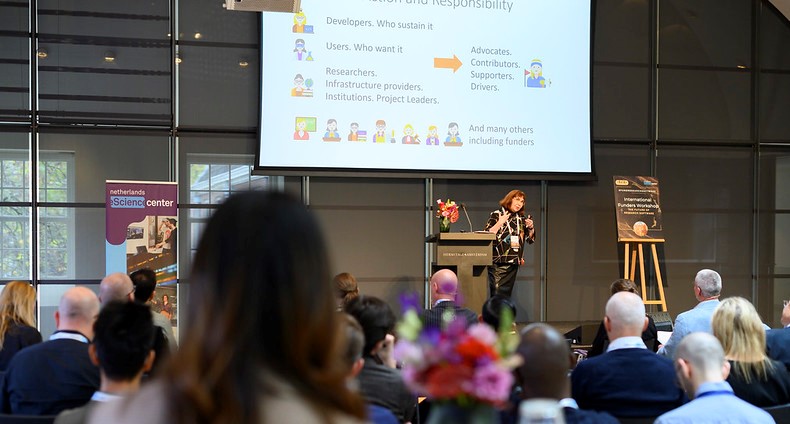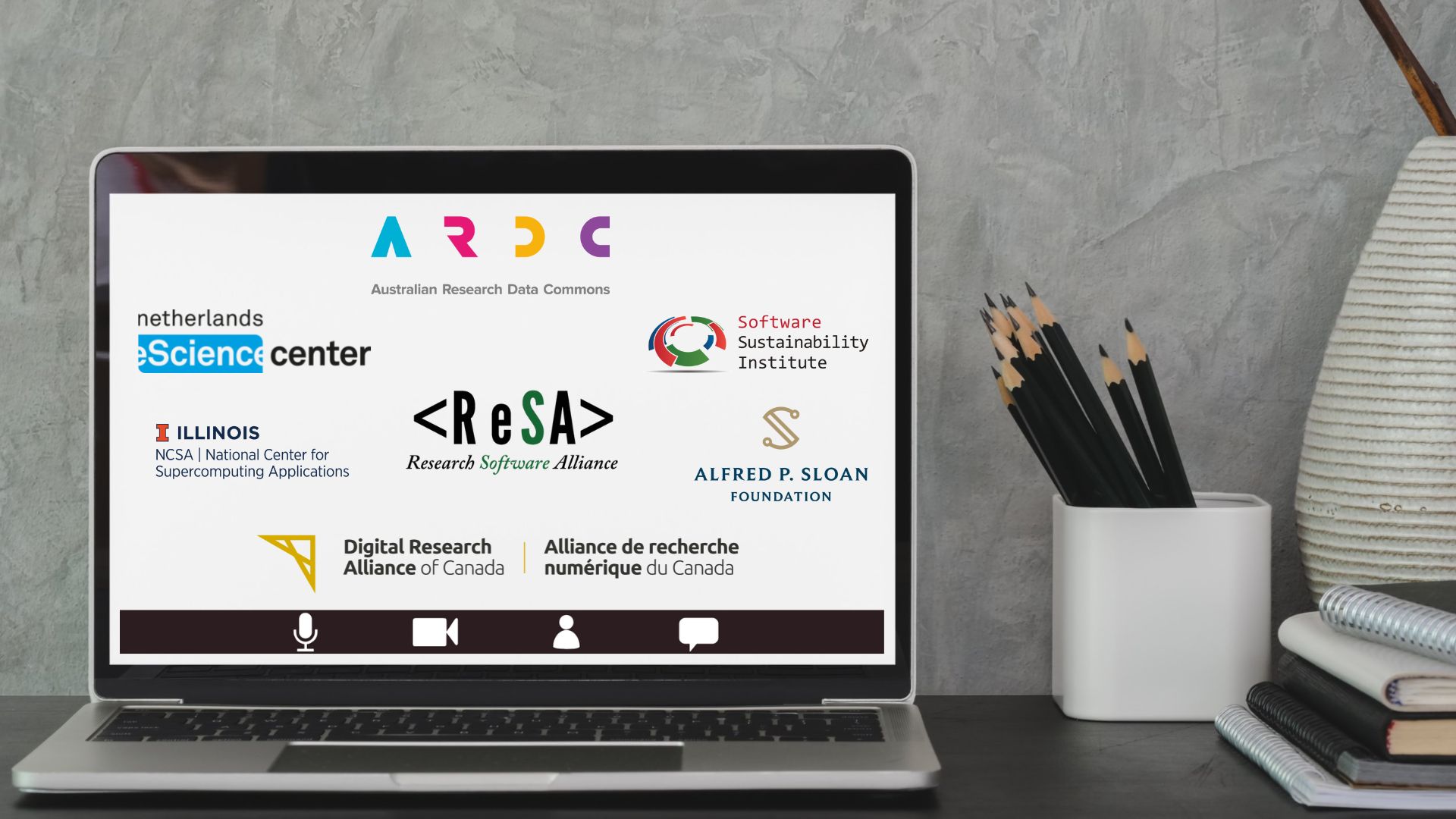Expanding the mapping of the global research software community
October, 2022
Authors: Michelle Barker
Introduction
The Research Software Alliance (ReSA) has been expanding their 2020 mapping of the international research software community landscape (Katz et al., 2020), to assist in fulfilling the ReSA mission to bring research software communities together to collaborate on the advancement of research software. We wanted to learn more about communities that share our vision that research software and those who develop and maintain it are recognised and valued as fundamental and vital to research worldwide.
Increasing international collaboration and information flow around our vision can help increase research impact and assist in other societal goals. Just as open science and open source software can be a driver of equity (Powell, 2021), this can be true of research software:
Like other areas in science and technology, scientific open source development tends to be dominated by activity originating in the U.S., Canada, and Western Europe. But for those of us who hail from Latin America, its real promise lies in offering not only access but also agency as first-class participants and co-creators to people from all nations.” (Ación et al., 2022)
Findings
The resulting report, The Research Software Community Landscape in the Global South (Martinez, 2022c), identifies 126 organisations and communities (Martinez, 2022a) and 62 funders (Martinez, 2022b) that were identified as potentially supporting research software in the Global South (see also a video about this report). This report is based on profiling of 22 countries by regional consultants, noting that only some of the Global South countries were covered due to resourcing limitations:
- Africa: Benin, Botswana, Cameroon, Democratic Republic of the Congo (DRC), Ghana, Kenya, Namibia, Nigeria, and South Africa. By Anthony Oko-Isu, Jessica Upani, Caleb Kibet, and Narcisse Mbunzama
- South America: Argentina, Bolivia, Brazil, and Colombia. By Nicolás Wolovick, Paula Andrea Martinez, Renato Augusto Corrêa dos Santos, and Stephannie Jimenez Gacha
- Asia: Bangladesh, Bhutan, China, India, Indonesia, Nepal, Pakistan, Saudi Arabia, and Sri Lanka. By Abdullah Shams Bin Tariq, Saranjeet Kaur Bhogal, Jyoti Bhogal, Arslan Sheikh, and Batool Almarzouq
This report’s analysis shows that few of the 126 organisations and communities focus solely on research software, for most research software is just a part of their interests. For example, Open Science Community Saudi Arabia (OSCSA) mainly targets academics and encourages best practices of sharing, versioning, and documenting research software (amongst many other skills and practices); and OpenScienceKE seeks to promote open science practices in bioinformatics in Kenya. In comparison, the 2020 mapping focused on organisations with a strong focus on research software, although not necessarily with only this focus.
This focus can also be seen in the list of 62 funders where the majority focus on research, and sometimes technology or open source software in general, rather than specifically targeted programs. For example, in Brazil the São Paulo Research Foundation (FAPESP) offers a Technical Training Program that aims at training and improving the skills of mid-and higher level technicians who participate in the development of research projects in the state of São Paulo.
The listing includes regional Research Software Engineering (RSE) groups Research Software & Systems Engineers of Africa, a forum for Research Software & Systems Engineers (RSSE) on the African continent that aims to share skills and opportunities and improve equity, diversity and inclusion within the research software and systems engineering (RSSE) space. The RSE Asia Association is similar, with past engagements including co-convening a session at the Asian Pacific Advanced Network meeting in March 2022 on “Growing research software communities and initiatives in the Asia Pacific” (slides).
There are also some valuable resources about the open source software community available. For example, Open Source Software in India, Kenya, Egypt, and Mexico considers communities, initiatives, opportunities, and challenges in four low-to-middle income countries, noting that the “most cited challenges to use or contribute to open source software included a lack of education and mentorship opportunities, language skills and financial ability” (GitHub & OBI Digital Solutions, 2022).
Next steps
To continue to progress this work, readers are invited to continue to add or make corrections to the list of research software communities and research software funders in these regions, and to engage in ReSA activities to maximise promotion of both local and international initiatives. This can help build the evidence base to encourage more focus on this area, in combination with application of ally skills to promote diverse, equitable and inclusive approaches to community development. As Open Source and Open Science in Latin America notes:
There [is] a lack of incentives to promote open source work and science in academia in our countries … Inclusive communities of practice that lower as many barriers as possible to international involvement, such as R-Ladies, PyLadies, Open Life Science, or The Turing Way, help to change this. But we need many more. (Ación et al., 2022)
You can also engage with colleagues at our monthly Research Software Community Forum or on our Slack channel, join task forces, and stay up to date via our newsletter or Twitter.
References
Ación, L., Peña-Castellanos, G., & Pérez, F. (2022, September 15). Open Source and Open Science in Latin America. Medium. https://cziscience.medium.com/open-source-and-open-science-in-latin-america-e3a1f5cc6744
GitHub & OBI Digital Solutions. (2022). Open Source Software in India, Kenya, Egypt, and Mexico. https://socialimpact.github.com/assets/img/research/GitHub_OSS-India-Kenya-Egypt-Mexico.pdf
Martinez, P. A. (2022a). Research Software Communities Global South [Data set]. Zenodo. https://doi.org/10.5281/ZENODO.7179807
Martinez, P. A. (2022b). Research Software Funders Global South. [Data set]. Zenodo. https://doi.org/10.5281/ZENODO.7179867
Martinez, P. A. (2022c). The Research Software Community Landscape in the Global South. https://doi.org/10.5281/ZENODO.7179892
Powell, T. J. (2021). How Open Source Increases Access to Computational Tools for Every Scientist. Chan Zuckerberg Initiative. https://chanzuckerberg.com/blog/importance-open-source-science-software/
Acknowledgements
This work was supported by the Wellcome Trust grant [222436/Z/21/Z].






